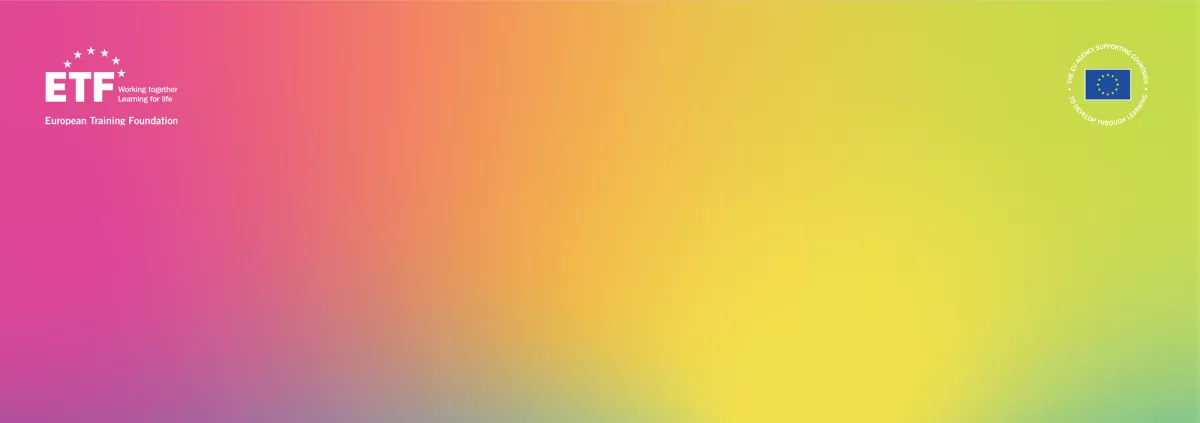Micro-credentials are quickly gaining interest. They are seen as instrumental in supporting upskilling and reskilling in response to the rapid transformation in labour markets. Emerging jobs will require new skills, and for such a transition people will need to keep up-to-date and make their learning more adapted to individual needs. Small micro-credentials can be part of the solution.
ETF is launching its first survey on Micro-credentials to collect information on the emerging topic. The survey will help to know more about:
- understanding of micro-credentials by different actors and education and labour market stakeholders, their relationship to other credentials issued in the countries;
- advantages and challenges of their uptake, motivations behind their issue;
- relevant quality assurance practices, relationship between Micro-credentials and recognition of prior learning;
- how countries are accommodating Micro-credentials in their systems, and what support is needed.
We invite you to comment on our online survey. Please, feel free to respond and provide us with your thoughts and ideas in English, French or Russian at the following link: https://ec.europa.eu/eusurvey/runner/ETFMicrocredentialSurvey2021
The survey will be open until 5 July. It will take you 15-20 min to fill in.
Thank you very much for your contribution.

Done! Micro credentials seem like the future of life-long learning, they are flexible and quick to adapt to a constantly changing environment. The biggest problem is to ensure their quality, and that they are recognised in every country.
Thank you, Sandra! The biggest challenge is quality assurance of micro-credentials, indeed. The question is should it be linked to QA of programmes, or to QA of certification/ assessment, or may there be other modalities?
I am not sure how to ensure that, unfortunately. The easiest way would be to have an assessment by the users of those micro-credentials, to check whether the micro-credential has been useful for their employability or to grow in their learning path. But those systems can be easily corrupted (look what happens in Amazon, with sellers offering to pay for the products, so they get a good rating). Maybe the easiest way would be to create a list of certified suppliers of quality micro-credentials, which would have to be assessed from time to time by third official parties. Or maybe a 270º tool could be developed: the micro-credential would be evaluated by the learners, by the companies, by the government...
Please log in or sign up to comment.